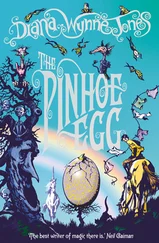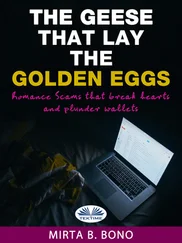‘Forty years, sir. Until he retired.’
‘So you’re a police family?’ Brunetti asked with a smile.
‘I suppose you could say that, Dottore. Sandro’s brother Luca is in the Guardia Costiera.’
‘Anyone else?’
‘No, sir.’ Then, with a smile, Pucetti added, ‘My mother has a German Shepherd. Does that count?’
‘I’m afraid not, Pucetti. Not unless it’s been trained to smell bombs or drugs.’
Pucetti’s smile broadened. ‘I’m afraid all he can smell is food, Dottore.’ Then he asked, ‘What do you want to know about the vigili, sir?’
‘It’s about that mask shop in Campo San Barnaba. I’ve been told the vigili have been ignoring the plateatico they use.’
Pucetti glanced away, no doubt hunting for the shop in his route-walking memory. He looked back at Brunetti and said, ‘I’ll ask Sandro, sir.’
Brunetti thanked him and sent him back to the squad room. Glancing at his watch, he saw that it was well past the hour to go down to the bar at the bridge for a coffee. Signorina Elettra would come up in good time, he was certain.
3
In order to distract himself from continuing to think about Patta’s request, Brunetti went downstairs and asked Vianello if he’d like to come for a coffee. The Inspector closed the file he was reading and got to his feet. They walked along the riva side by side, occasionally moving out of the way of the people walking towards them. Vianello talked about his vacation, which he had delayed until November and was now trying to organize.
Inside the bar, they exchanged pleasantries with Sergio, the owner, who now worked only a few days a week. They ordered two coffees; while they waited, Vianello pulled a pamphlet from his pocket and placed it on the counter in front of Brunetti. He saw a long expanse of white sand, the usual palm trees bending down towards it, and in the far distance the beaches, equally white, of small islands.
‘Where’s this?’ Brunetti asked, tapping a finger on one of the trees.
‘The Seychelles,’ Vianello answered just as Sergio brought them their coffees. Vianello ripped open a packet of sugar and poured it into his cup, then added, ‘Nadia wants to go there.’
‘You sound as if you don’t want to,’ Brunetti said as he stirred sugar into his own coffee.
‘I don’t,’ Vianello answered.
‘But you’ve got this,’ Brunetti said, licking his spoon clean and using it to tap the brochure.
‘Nadia got it,’ Vianello clarified.
‘And you’re carrying it around.’
Vianello took a sip of coffee, swirled the cup twice, and finished it. He set it on the saucer and said, ‘I’m carrying it around, but I’m also carrying around the receipt for the hotel in Umbria we’ve reserved for the first two weeks in November.’
‘Can you cancel the reservation?’ Brunetti asked.
Vianello shrugged. ‘I suppose I can. Nadia went to school with the owner, and he knows how crazy my schedule can be. But I wanted the kids to see it.’
‘Any particular reason?’ Brunetti asked.
‘Because it’s a working farm. Not one of those places where they keep a donkey in a field and sell you apples to give to it,’ Vianello said with contempt. ‘They’ve got cows and sheep and chickens, all those animals my kids think live inside the television.’
‘Come on, Lorenzo,’ Brunetti said with a smile, ‘they’re a little too old for that.’
Vianello smiled, ‘I know. But the animals might as well be on TV. How are city kids supposed to know what an animal is and what it does or what it’s like to work the land?’
‘You think that’s important?’ Brunetti asked.
‘Of course it’s important,’ Vianello said, perhaps too fiercely. ‘You know it is. Everyone’s always telling us we should respect nature, but if kids never see it, how are they going to respect it? All they get are some crazy
ideas that television gives them.’
‘That’s television’s job, I think,’ Brunetti observed.
‘What is?’
‘Giving people crazy ideas,’ he said, then asked, ‘What are you going to do?’ He knew Vianello’s wife and was surprised that she’d had an idea like this. ‘Are you sure Nadia really wants to go to the Seychelles?’
Vianello asked Sergio for a glass of tap water and did not speak until the barman set it in front of him, when he said, ‘She got the brochure and said that it would be wonderful to get away from the cold.’ He drank the water, set the glass back down. ‘Doesn’t that sound like she wants to go?’ He did not look at Brunetti as he asked this.
‘Are you going to tell me the real reason?’ Brunetti surprised Vianello, and perhaps himself, by asking. ‘Why you don’t want to go?’ Before Vianello could protest, Brunetti said, ‘I know, I know, the kids need to be exposed to nature.’
Vianello picked up his glass and was surprised to find it empty. He put two Euros on the counter and turned towards the door.
Outside, they fell into step and started back to the Questura. Brunetti, content to have asked his question, waited for his friend to speak. A boat puttered past them, a mottled brown dog standing at the front, barking with the joy of the boat’s forward motion.
‘We shouldn’t do things like that,’ Vianello finally said.
‘Like what?’
‘Travel those distances,’ Vianello said. ‘Just to go and lie in the sand and look at the sea, I mean.’ The barking diminished, and Vianello went on. ‘If you’re a neurosurgeon and you have to go somewhere to save a life, then get on a plane and fly. But not to lie on the beach. It’s not right.’ Then, happy to think of further justification, Vianello added, ‘Besides, the sun’s bad for you.’
They walked a few more steps. ‘Right in an ecological sense?’ asked Brunetti, unable to resist the impulse to take a poke at Vianello’s growing enthusiasm.
Eventually Vianello said, ‘Yes.’
Brunetti slowed down and then stopped. He rested his forearms on the metal railing beside the canal and turned back towards the leaning tower of the Greek church. Another boat entered the canal from the right, passed them, then the Questura, and went on its way.
Brunetti stood there, watching the boat approach the far turn and thinking about Vianello’s use of the word ‘right’. It was a smallish boat, and there was no appearance of cargo in it, so the man might well be going down to Castello to meet his friends for a drink and a game of cards. Like all motors, however small, this one would leave a slick of oil on the water, adding to the pollution and thus to the eventual death of the laguna . So, under Vianello’s system of judgement, would the man’s trip be condemned as not ‘right’, or was there a factor of quantity to be considered? Or, as Vianello had stated, necessity? How much could we do before it became wrong?
The priests, he remembered, had taught him and his friends that gluttony was one of the cardinal sins, but Brunetti had never known what gluttony was. More accurately, though he had grasped that it meant eating too much, he had never understood where ‘too much’ began. How could wanting a second helping of his mother’s sarde in saor be wrong? Which sardine would push him over the edge from pleasure to sin? It was this perplexity that had led the young Brunetti to the realization of how strongly the priests associated pleasure with sin, and that had put an end to that.
‘Well?’ Vianello asked when the boat had disappeared and Brunetti had still not spoken.
‘I think you should go to Umbria.’
‘And my reason for wanting to go there?’ Vianello asked.
‘It’s a perfectly legitimate one,’ Brunetti answered and, pushing himself back from the railing, headed towards the Questura.
Читать дальше












